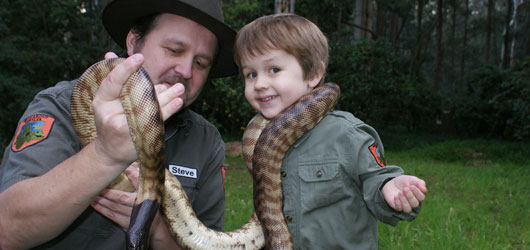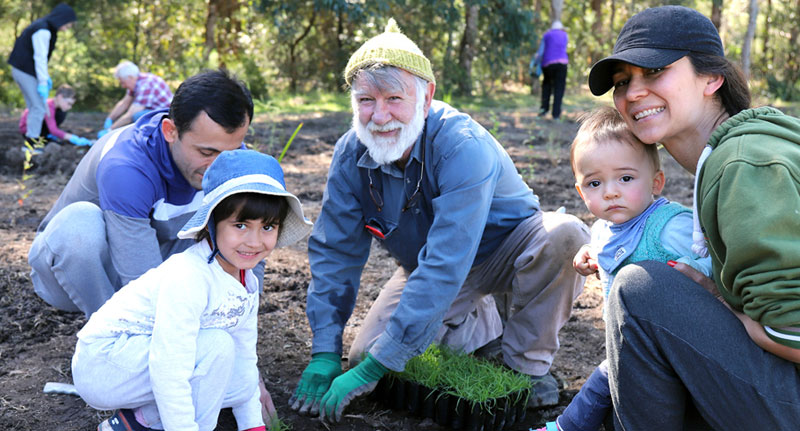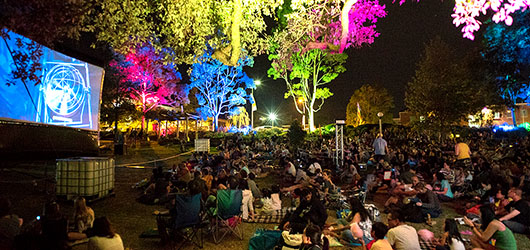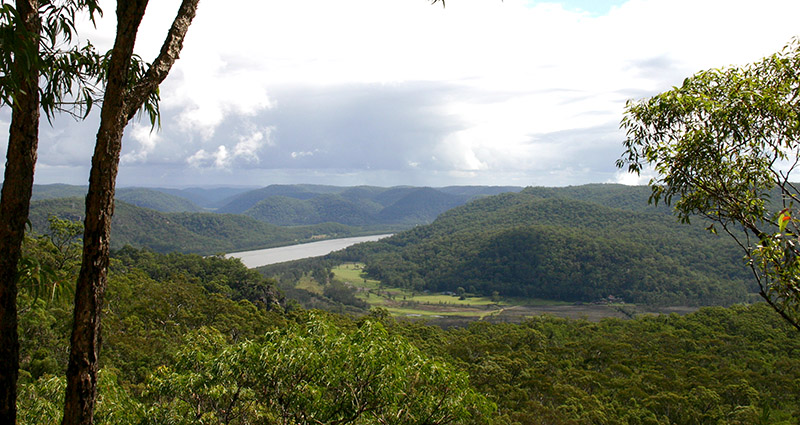Resources for Schools

School Sustainability – in particular Climate Change Mitigation and Energy Efficiency
Council is supportive of reducing community emissions and have adopted a target of net zero emissions by 2050 as part of our Sustainable Hornsby 2040 Strategy and Climate Wise Hornsby Plan.
Council are partnering with Business Australia to deliver a Business Energy Advice Program where schools (and other businesses) can sign up to get tailored energy efficiency recommendations.
Over the coming year Council will be implementing a number of projects including workshops, educational talks. Please subscribe to our Business newsletter.
Environmental education providers
- Gibberagong Environmental Education Centre (DET) - (02) 9457 8245
- Sustainable Schools Network
- Sustainable Living Centre at UNSW or phone (02) 9385 4979
- Australian Association of Environmental Education
- Gould League
- Department of Planning, Industry and Environment
- Pet PEP - a national animal care and welfare education program. Phone 1800 282 738 or email petpepnsw@ava.com.au
- Materials are also available for loan from Council
- Hornsby Shire libraries have some great environmental and sustainability resources. Look for the earthwise symbol.
Bushland resources
- Cumberland Forest provide a range of resources including guided walks, education packs and an education program for years 3 to 12. Phone (02) 9871 0050 or visit www.forestrycorporation.com.au.
- "Hornsby Shire Vegetation Guide"
- "Create a Native Garden: Information on choosing the best native plants for gardens in the Bushland Shire" HSC 2005 other publications available
- Video on "Getting started in Bush Regeneration" available upon request
Water resources
- Catchment Story, available on loan from Council
- Streamwatch, contact Sydney Water on 8752 6400 or visit www.streamwatch.org.au
Waste resources
- Clean Up Australia Day Council
- Visy Recycling
- Keep Australia Beautiful or email wastewatchers@kabnsw.org.au
- Planet Ark
- Take 3 for The Sea
- Cleanaway Greenius
- Plastic Oceans Australasia
- Clean Up Australia Recykool
- Planet Ark Recycle Right Challenge
- NSW Gov Primary teaching and learning hub
- Visy x Cool Australia
Traffic resources
Biodiversity resources
Biodiversity for Kids
A hands-on Science and Technology unit for Stage 2 that is designed to help teach about biodiversity in the local environment. Students learn about biodiversity, animal and plant habitats, ecosystems, food chains and biodiversity surveys. This teacher's kit includes:
- comprehensive unit of work (10 lesson plans, outcomes and indicators, teacher’s notes, student fact sheets)
- student work sheets
- colour cartoon poster ’biodiversity school’
- nine colour photographic posters of ecosystems in NSW
- one video ’web of life for kids’ (Biodiversity)
For more information visit www.environment.nsw.gov.au.
Earth Alive
Field of Mars Environmental Education has developed a Science and Technology unit for Stage 3 that is a hands-on look at biodiversity in your area. Field of Mars supports the implementation of the program in your school by providing:
- teaching/learning materials
- information and resources
- 3-5 staff visits to your school to help students conduct biodiversity investigations in the school and local area
For more information visit www.fieldofmar-e.schools.nsw.edu.au.
Birds in Backyards School Resources
For both primary and secondary syllabus:
- K-6 Science and Technology: Living Things, Investigating, Using Technology
- K-6 Human Society and Its Environment: Environments
- 7-10 Science Prescribed Focus Areas: The Nature and Practice of Science
- 7-10 Science Skills: Gathering, Analysing and Presenting Scientific Information.
- 7-10 Science Knowledge and Understanding: Classification, Ecosystems, Human Impacts
For more information visit www.birdsinbackyards.net.
Backyards for Learning
This program inspires families and children to explore the wonders of the environment revealed in their own backyards and understand how protecting the environment can begin at home. Some sheets include:
- Attracting Animals to your Backyard
- Environmentally Happy Backyards
- Family Backyard Scorecard - How environmentally happy is your backyard?
- Give a Frog a Home.
For more information visit www.gould.org.au.
Weed Warriors
A national program for students that provides participants the opportunity to learn about invasive pest plants. Through a program of interactive learning and hands-on experience, in partnership with government and the community, Weed Warriors promotes awareness local weed issues.
For more information visit www.weedwarriors.net.au.
Ghastly Guests
The Stage 3 unit investigates weeds nationwide and includes suggested lesson activities with accompanying worksheets and teacher resources. Activities in the unit are linked to the curriculum in each state and territory. The unit is divided into 3 sections:
- what are weeds - students complete activities that introduce and describe weeds discovering some basic weed issues and developing their interest to find out more about this topic.
- why are weeds such ghastly guests? - The activities in this section provide the opportunity for students to investigate weeds by completing a range of scientific experiments and activities. Students will discover the different adaptations of weeds, weed seed dispersal, weed seed dormancy and plant competition. The experiments and activities in this section are also designed to enable students to develop scientific investigative skills such as designing and carrying out fair tests; predicting; observing; designing models; recording; evaluating procedures; presenting; and analysing data collected to form conclusions.
- final projects - students apply the theory that they have learnt by completing some assessable projects
For more information visit www.weedscrc.org.au.
Weed Wipeout Game
A fun on-line interactive game where the player manages a farm with some weed problems. The player selects the most appropriate weed management strategy and then discovers the results of these decisions. It is suitable for Stage 4 or Stage 3 students requiring extension.
The game simulates real life with the player using their bank account to deal with weed problems on the farm. Players are exposed to problems of build up of herbicide resistance, the costs and time involved in managing weeds and other problems with managing a farm.
For more information visit www.weedscrc.org.au.
The Cumberland Plain Counts – Bushcare with Students: A Teaching Manual and Guide for Natural Resource Management in Schools
Although based on western Sydney, this resource provides an excellent guide for schools to become more fully involved in bushcare on their grounds. It is located on the DET intranet and follow the link to the Western Sydney Regional website then follow the link to Environmental Education.
BugWise for Schools
Australian Museum scientists, measures invertebrate biodiversity and meets various syllabus and environmental education requirements of the NSW K-6 Science and Technology Syllabus. For more information visit www.bugwise.net.au/resources/bugwise-tools-and-guides.







